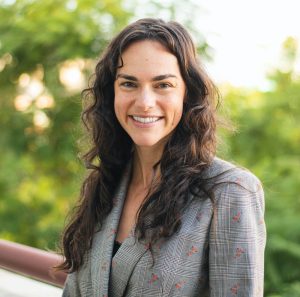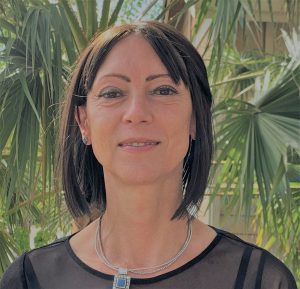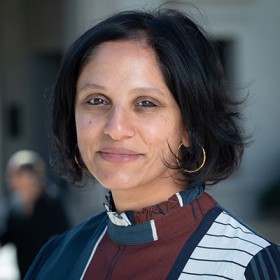
COEH Research Seminars
We present monthly COEH Research Seminars featuring guest speakers during the academic year. We also hold regular environmental health seminars presented by EHS faculty and graduate students. For more information, please see our Events Page.
Annual Symposia on Occupational and Environmental Health Threats
We are pleased to announce that the Second UCI-COEH Symposium on Occupational and Environmental Health Threats will be held June 16-17, 2022. For more information, please click here.
The First Annual UCI-COEH Symposium on Occupational and Environmental Health Threats was held in February 2020. For information, please click here.
Latest Events
- COEH Research Seminar
- COEH Research Seminar: “Projecting Heat Waves and their Health Risks in a Changing Climate”

Friday, November 4, 2022
3:30 – 5:00 PM
COEH, 100 Theory, Room 158Jane W. Baldwin, Ph.D.
Assistant Professor of Earth System Science,
University of California, Irvine
Adjunct Associate Research Scientist,
Lamont-Doherty Earth Observatory,
Columbia UniversityDr. Baldwin is broadly interested in how large-scale atmospheric dynamics influence regional climate and climatic extremes, with an eye to climate change and policy applications.
Dr. Baldwin is currently an Assistant Professor in the Department of Earth System Science at University of California, Irvine. She was previously a Lamont-Doherty Earth Observatory Postdoctoral Fellow at Columbia University developing models of tropical cyclone risk. She completed her PhD in Atmospheric and Oceanic Sciences at Princeton University, collaborating with the NOAA Geophysical Fluid Dynamics Laboratory. Her dissertation used Global Climate Models to examine the influence of mountains on deserts, monsoons, and tropical cyclones. She also researched temporal structure and risk of heat waves through a PEI-STEP fellowship in joint with the Princeton School of Public and International Affairs (formerly Woodrow Wilson School). She was introduced to climate dynamics research through her senior thesis while an undergraduate studying Earth and Planetary Science at Harvard University.
- Back to the Future: Looking towards sustainable, equitable, and healthy transportation
- COEH Research Seminar: “Establishing Limits for Pesticides on Cannabis (The California Story)”
Friday, May 6, 2022
3:30 – 5:00 PM
COEH, 100 Theory, Room 158Svetlana Koshlukova, PhD
Senior Toxicologist
Risk Assessment Section
Human Health Assessment Branch
Department of Pesticide Regulation
CalEPADr. Svetlana Koshlukova is currently the Senior Toxicologist of the Risk Assessment Section in the Department of Pesticide Regulation (DPR), California Environmental Protection Agency. In that post, she supervises DPR’s risk assessment program. She has been a pesticide toxicologist at DPR since 2001, serving either as the lead or contributing risk assessor for numerous complex human health risk assessments on pesticidal active ingredients including methyl parathion, imidacloprid, chlorpyrifos, fipronil, propanil and the fumigants 1,3-dichloropropene, sulfuryl fluoride and allyl isothiocyanate. She is also involved in DPR’s food safety, water safety, and cannabis programs, which evaluate risks from exposure to pesticide residues in fresh produce, drinking water, and cannabis products. Dr. Koshlukova received a MS degree in Chemistry from Sofia University in Bulgaria, and a PhD in Biochemistry from the Bulgarian Academy of Sciences in Sofia, Bulgaria. She did postdoctoral work in the Department of Pharmacology and Toxicology and in the Department of Oral Biology at the State University of New York at Buffalo. Her postdoctoral research focused on molecular mechanisms of action of growth factors and antimicrobial proteins. Dr. Koshlukova has authored numerous peer-reviewed publications and book chapters. Her current research interests center on new approach methodologies in human health risk assessment, dosimetry and dietary exposure assessment.o.
- COEH Research Seminar: “Community based research as a movement strategy to eliminate environmental health disparities”
Friday, March 4, 2022
3:30 – 5:00 PM
via Zoom
(register here)Dr. Bhavna Shamasunder
Associate Professor
Urban & Environmental Policy and Public Health Program
Occidental CollegeSummary:
What can a 10-year long successful struggle to curb oil drilling in Los Angeles and a study of chemical exposures from beauty products used by women of color tell us about the role of community-based research in environmental health and justice? This talk examines data from the Taking Stock Study to consider how research can work alongside environmental justice social movements to address structural inequality and help eliminate environmental health disparities.Bio: Bhavna teaches and conducts research on environmental health and justice with a focus on the disparate and cumulative burdens faced by poor communities of color. Her active research projects include health impacts from neighborhood oil drilling in Los Angeles; the “environmental injustice of beauty” that considers health disparities for women of color from synthetic chemicals in consumer products; and the types of information (i.e. economic, public health, etc..) used by diverse immigrant communities in decisions to lighten skin and/or use skin lightening products. Her work has been supported by the National Institute of Environmental Health Sciences, the California Breast Cancer Research Program, and the National Science Foundation. She received her doctorate from the University of California, Berkeley in the Department of Environmental Science, Policy, and Management, a master’s in environmental studies from the Yale School of the Environment, and Bachelors’ degrees in Biology and Development Studies from the University of California, San Diego.
- COEH Research Seminar: “Collaborative Public Health Research and Practice: A Less Complicated Solution to Mitigating Environmentally Driven Health Disparities”
Friday, February 18, 2022
3:30 – 5:00 PM
via Zoom
(register here)Beverly Xaviera Watkins, MA, PhD
Social epidemiologist and community-engaged research practitionerBeverly Xaviera Watkins, MA, PhD, is a social epidemiologist and community-engaged research practitioner with a 26-year track record in community-based programs and projects. For over two decades, she has worked to reduce health disparities and level the playing field between the academy and community, both in academia, leading large scale community-engagement efforts at Columbia, Cornell and NYU, and at the grassroots community level, partnering with local direct social service delivery groups and non-profits that work within diverse racial and ethnic health disparity communities (African- Americans, Latinos, and Asian-Americans) throughout New York City: in Brooklyn (Families United for Racial and Economic Equality, FUREE and Public Housing Civic Association, PHC), in the South Bronx (Youth Ministries for Peace and Justice, YMPJ), and the Lower East Side (Good Old Lower East Side, GOLES), and in Chinatown (Chinese Progressive Association, CPA. In Brooklyn, NY. Dr. Watkins employs qualitative and quantitative methods to develop evidence-based approaches and integrate community-engagement into the practice of biomedical and behavioral social science and public health research.
This event is brought to you by the UCI Black Thriving Initiative Cluster Hire in Environmental Health Disparities and the Center for Environmental Health Disparities Research (CEHDR).
- “Exposure to hexavalent chromium and female reproductive dysfunction”
Friday, November 5, 2021
3:30-5:00 PM
via Zoom (please email coeh@uci.edu for details)Dr. Sakhila Banu
Associate Professor
Veterinary Integrative Biosciences
Texas A&M UniversityDr. Sakhila Banu is Associate Professor of Veterinary Integrated Biosciences at Texas A & M University (TAMU). Dr. Banu received her PhD in Endocrinology from the University of Madras in Chennai, India and did postdoctoral training at the University of Laval and the University of Montreal, both in Quebec.
Her research focuses on understanding the molecular mechanisms of prenatal chromium VI (CrVI) exposure on placental and fetal development, ovarian and uterine function, and pregnancy outcome, and; 2) to understand the protective effects of various natural and synthetic antioxidants against the deleterious effects of heavy-metals, CrVI in particular. Her current research is focused on the study of reproductive and developmental toxicity of CrVI, specifically to determine molecular pathways and identify target genes/proteins by which Cr alters prenatal development and organogenesis of female reproductive system in the offspring. Her research is funded by the National Institute of Environmental Health Sciences of the NIH.
Dr. Banu is recipient of the TAMU Outstanding Scientific Achievement Award and TAMU Montague-Center for Teaching Excellence Scholar Award.
- “Investigating the Interplay Between Environmental and Social Stressors on Child Health”
Friday, October 1, 2021
3:30-5:00 PM
COEH, 100 Theory, Room 158Carrie Breton, ScD
Associate Professor of Preventive Medicine
Keck School of Medicine
University of Southern CaliforniaCarrie Breton, ScD, is Associate Professor of Preventive Medicine at the Keck School of Medicine of USC and is Director of the Maternal And Developmental Risks from Environmental and Social Stressors (MADRES) Center for Environmental Health Disparities. She also co-directs the USC program site for the Environmental Influences on Child Health Outcomes (ECHO) national NIH program. Dr. Breton’s work addresses the interplay between genetics, epigenetics and susceptibility to environmental exposures such as air pollution and tobacco smoke on health outcomes in children. Her work in the MADRES Center examines whether pre- and postpartum environmental exposures, coupled with exposures to psychosocial and built environment stressors, affect maternal and child cardiometabolic health outcomes, including perturbed infant growth trajectories and increased childhood obesity risk. Her work in ECHO takes a multigenerational life course approach to studying the contribution of the environment to the developmental origins of childhood and emerging adult respiratory and metabolic health. She has conducted several other studies investigating how environmental exposures alter epigenetic profiles in newborns and young children, and what roles those changes play in underlying disease risk. Dr. Breton holds an ScD in Epidemiology from Harvard T Chan School of Public Health, an MPH from the University of California, Los Angeles, and a BA from Amherst College.
- Protecting Frontline & Essential Workers in LA: Public Health Councils
June 24, 2021
12:00 – 1:00 pm PST
Register at http://bit.ly/PHcouncilsPlease join our colleagues at UCLA for an informative webinar on the impacts of COVID-19 among frontline and essential workers in Los Angeles County. A Public Health Councils initiative that brings together worker organizations, public health department representatives, and academic partners to support workers in monitoring and enforcement of COVID-related health officer orders will also be discussed. CEUs will be available.
[/et_pb_text][/et_pb_column]
[/et_pb_row]
[/et_pb_section]




